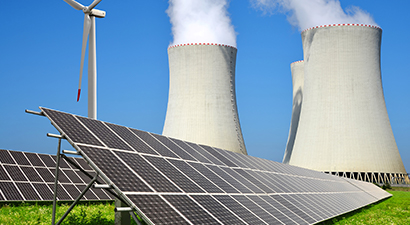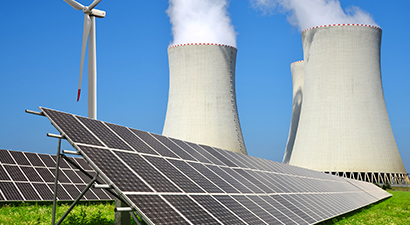When is it greener on the other side?
There can be no doubt that environmental law rights hold an increasingly important position in a national and international context. Indeed, this is evident by the fact that economic and social rights are deeply reliant on proper ecological functioning – making the protection and regulation of environmental rights of paramount importance. The foundation of these environmental law rights in South Africa is based in Section 24 of the Constitution.
Section 24 enshrines a fundamental right to an environment that is not harmful to health or well-being. This must be given effect to for the benefit of present and future generations through reasonable legislative and other measures that prevent pollution and ecological degradation, promote conservation and secure ecologically sustainable development and use of natural resources. At the same time justifiable economic and social development must be promoted.
These measures are therefore achieved through the promulgation of suitable environmental legislation. But what does protection through “reasonable legislative and other measures” entail?
Firstly, by sanctioning actions or omissions that could be harmful to the health or well-being and the protection of the environment. Secondly, through various administrative actions, such as licensing and undertaking inspections at facilities.
Using “legislative and other measures” is the most effective way for the State to protect the environment. The dilemma is that legislation is often unwieldly to amend. Whereas environmental and technological changes can happen relatively quickly, the process or political will for amending legislation can be slow. There can be a significant a lapse of time between the need for legislation and the actual enactment thereof.
A recent legislative change, that will assist South Africa from both an environmental and an economic perspective, is the Amended Schedule 2 of the Electricity Regulation Act 4 of 2006. The amendment was gazetted by Minister Gwede Mantashe on 12 August 2021. This amendment relaxes the procedure for a variety of electricity generation activities from requiring an application process, to only requiring registration with the National Energy Regulator of South Africa (NERSA). Prior to the amendment, all electricity generation facilities had to apply for and be issued a licence in order to provide an end-user with electricity, when the electricity generation facility had a capacity of over 1MW. However, under the Amendment, private electricity generation facilities with a 100MW electricity generation capacity need only register with NERSA.
For a realistic idea of what the practical implications of this change are, we need to understand what a megawatt is. A watt is the unit used to measure electricity. One million watts equates to 1MW. For each 1MW of electricity a coal power station produces, around 650 average homes are supplied with electricity. Under the Amendment, private electricity facilities are allowed to have a capacity 100 times the previous 1MW limit. It follows then, in the above example, that this would provide around 65,000 average homes with electricity.
The electricity generated can also now be sold directly to private “end-users”. Under this amendment, private electricity generators are not allowed to sell electricity to an intermediary – a municipality or Eskom for example.
This development echoes the amendment made at the end of 2020 which provided Municipalities with the latitude to move off the grid (subject to the acceptance of a proposal submitted to the Department of Mineral Resources and Energy by the Municipality).
The private generation of electricity is anticipated to result in an increase in the use of renewable energy sources. Notwithstanding that renewable energy sources are not specifically referred to in the amendments, they are comparatively more affordable than non-renewable sources. The affordability of renewable energy is especially appealing when considering the carbon tax that non-renewable energy sources attract when generating electricity over 10MW. The independence from Eskom in electricity generation will also lessen the current pressure on the national grid resulting in a significant reduction in load shedding.
South Africa was one of the founding members of the United Nations. It is also a signatory to the Paris Agreement Under the United Nations Framework Convention on Climate Change. Notwithstanding these international commitments, South Africa has one of the most carbon intensive economies in the G20 and is currently one of the top 15 emitters worldwide of greenhouse gases. Therefore, the move to allow for private distribution of electricity, is a positive step towards contributing to our carbon emissions by freeing up the private sectors ability to generate clean energy with limited regulatory red tape.
International investment relies increasingly on South Africa being able to demonstrate compliance with international environmental standards. An integrated approach comprising of both public and private sector participation will be instrumental to achieving this. Hopefully, the discussed recent amendments will see South African Industries and Municipalities placing more reliance on renewable energy in the future. It is important for South Africa, on a global stage, to be able to illustrate our commitment to reducing and combating the impact of climate change. However, the real commitment is firstly to the people of South Africa who are most vulnerable and must have their social, economic and environmental rights protected.
Written by Natercia dos Santos Niz.





